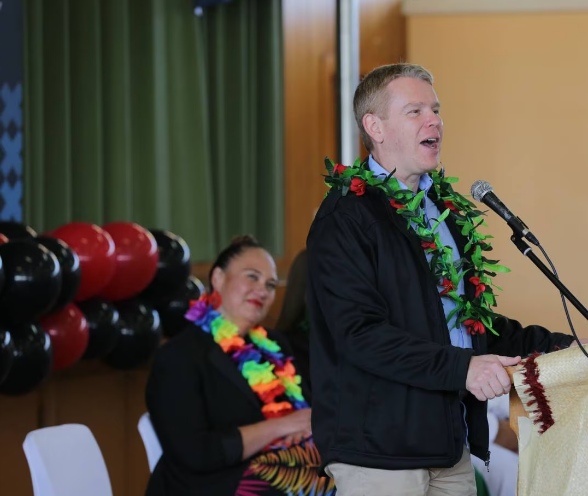Labour leader Chris Hipkins says if re-elected, a Labour government would “progressively move workers across health and education onto at least the living wage”.
Hipkins was speaking while on the campaign trail in Auckland’s Māngere today.
“Our health care assistants, caregivers, and school caretakers all play an important role in delivering our public services and should be better supported to have a decent standard of living," he said.
”We’re investing in our frontline services and people, not cutting them.
”This builds on our delivery of the living wage to workers on contracts for cleaning, catering and security guards across the public service.”
Labour will also ensure the minimum wage is raised every year, closing the gap between the minimum and living wages,” he said.

“When Labour came into government, the living wage was $20.20 per hour - almost five dollars an hour more than the minimum wage. Labour’s increases mean the current minimum wage was less than a dollar lower than the 2022/23 living wage.
”Lifting the minimum wage will support our lowest income earners and see wage growth continue upwards above the minimum wage too.”
He added that if re-elected on October 14, Labour would support young workers to have meaningful and secure employment by repealing the starting out and training rates.
”Current legislation allows our youngest workers and our workers undertaking training to be paid less than the statutory minimum rate, even though they are often doing the same work as their colleagues. Only a small number of young people are employed using these lower wages and removing them will help to restore equity in our minimum wage system.”
In announcing the policy positions, Labour's spokesperson for Workplace Relations and Safety, Carmel Sepuloni, claimed workers rights were “under threat” should National and Act gain power.
”Only a Labour government will safeguard fair pay agreements, where applications are currently progressing to improve pay and conditions for bus drivers, hospitality staff, early childhood teachers, port workers, cleaners and security guards.
”A re-elected Labour government will build on worker’s rights by protecting the value of collective bargaining, better-defining employees and contractors to protect vulnerable workers, and creating safer workplaces through better workplace violence support and education programmes.
”Labour has always been the party that protects and boosts workers’ rights. The choice this election has never been starker as a National/Act coalition line up to cut workers’ rights, while we commit to boosting them.”
Hipkins told the media at the announcement there was a lot happening on the residential building front, including a record number of housing consents and other actions that would make things better for first-home buyers.
He said it was imperative that any government funding put into workplace and training schemes was well-targeted.
Meanwhile, Sepuloni took a swipe at Act Party leader David Seymour for his attacks on the Ministry of Pacific Peoples, saying she couldn’t believe he continued to take aim at the department which represented a significant part of New Zealand’s population.
Hipkins again hit out at National’s policies, saying he didn’t think the party had “evidence” that they could afford their policies.
“I think they know the claims they are not going to cut health and education... they know they are [not right].”
On his recent poor poll results, Hipkins said there is only one poll that matters and that’s the one where everyone votes and hinted there are more policies to come.
Hipkins and National Party leader Christopher Luxon will face off in the first televised leaders’ debate on Tuesday, which one commentator considers to be the campaign’s “pivotal moment”.












